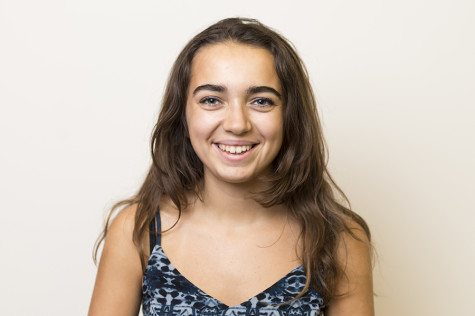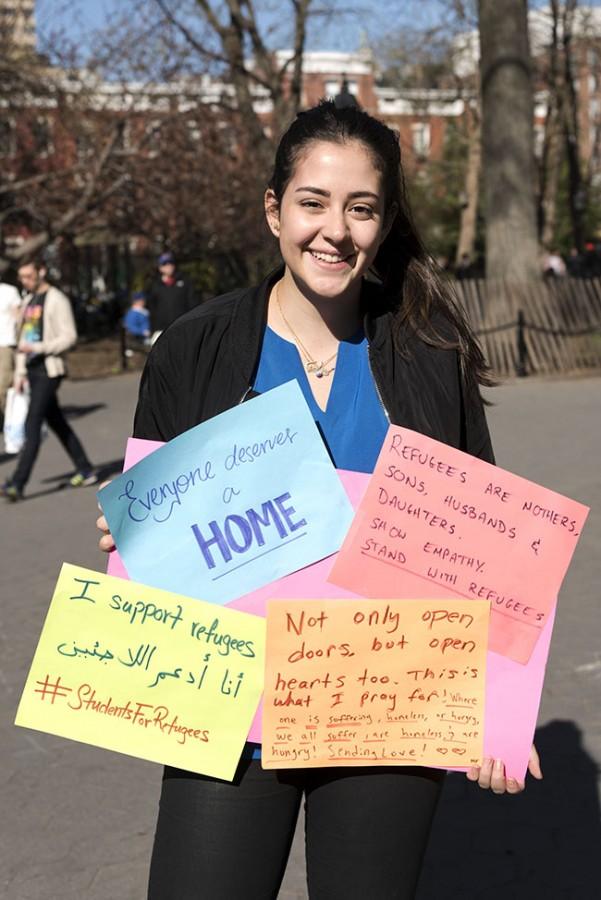Inside the Crisis: With a Student Who Lived in Syria
CAS sophomore Selin Yurtsever lived in Syria from September 2007 to May 2012. Selin experienced the Syrian conflict right from its start when anti-government demonstrations started as part of the Arab Spring, and had to leave the country when the situation escalated. She grew up in a family of diplomats and Syria was one of the five countries she has lived in throughout the course of her life. Her family originates from Turkey and Lebanon. Selin has also worked in international organizations for refugees and is involved in the organizing committee of the NYU Syrian Refugee Awareness Week.
WSN: How do you feel right now after having seen the events unfold from the start in Syria and the tragedy that is happening now?
Selin Yurtsever: The only thing that comes to mind is what a shame. I don’t know what happened for this country to be this drastically burned down. I’ve heard that in one of the houses that I lived a family from the suburbs of Damascus moved into it, because they don’t have houses there anymore. This only tells about these eternally displaced refugees. It makes me feel so sad how those innocent, uninvolved lives and families have to be put through this just because of big political actors that aren’t effective in bringing any solution. It has been five years and it’s only going downwards as living conditions.
And refugees, the only thing you hear from them, is “I want to return to my country, but just let the bombing and the shooting stop.” When I left, my friends started telling me about the political situation and I was confused. I didn’t understand. Because they started talking about the fact that the conflict stopped being two parties against each other.

It started involving small groups of people who were working with each other, but it was so hard to understand that everyone was fighting everyone and in turn no one was protecting those innocent civilians. So it’s at that moment that I realized that you can’t be safe in a country like that. Even before when it was simple, when it was a yes or no question, you would still have a one in million chance of being protected.
WSN: You say that a lot of people want to go back to the country. But at least in the media, the pictures we see as outsiders, all show a country in shambles. How can they return back to that?
SY: Just imagine yourself, that someone is taking away from you your routine that you grew up in, your family, your friends, the local markets you used to go to, your school, parts of your everyday life are being torn away from you. The only thing you can think of is “I want this back.” And I think that explains why when you personally speak with someone who unfortunately became a refugee that’s what they tell you, I want to go back to my home. I want to go back to Syria. But rationally, they’re not talking about Syria, the destructed, bombed Syria. Logically, we know that they’re not going to return anytime soon. I’ve worked with international organizations, the International Organization for Migration as part of the UN and they work with UNHCR and I’ve worked with organizations in Lebanon and all the statistics tells you that even if the conflict is resolved in no matter what way those people won’t go back to their own countries.
WSN: What is life like for your friends who are still in Syria?
SY: They tell me about how to go from one area to the other they have to go through many checkpoints. Even when I was there every morning they would check under the cars for any bombs. If anything the Syrian secret services are stronger than ever. But it’s not a bad thing, because it ensures the safety of its citizens.

What they tell me is that they don’t go out past 9 p.m., as some of them have exposure to sides [of the city] that are in active shooting areas. My best friend can’t sleep in his room, because of the windows. And when I was still there, when it was very new, a girl had her roof and the glass of her room fall off on her when she was sleeping because it was 5 a.m. and a bombing had happened. But in general, they have electricity cuts. They get electricity for two hours maybe, but they’ve accustomed their lives to that. People adapt.
WSN: Would you go back to Syria? You left Syria very close to your high school graduation.
SY: I’m still very strongly attached to everyone. I mean I consider Syria as the country I grew up in. It was the country I opened my eyes to. I lived there during the age when you start understanding things, you build relationships with people and I will be forever grateful for every contact I made there. It was a very enriching experience in every aspect in my life. It was a historically very rich country and I learned a lot. And right now in my classes, if I hadn’t been in certain areas in Syria, I wouldn’t have been as knowledgeable as I am. I owe to Syria knowing Arabic. Syria gave me a part of myself somehow. My friendships are invaluable and I have countless memories there. I feel a lot towards the country.
I couldn’t finish school in Syria because one day when I was going to school one of the first bombings of Damascus happened so that day was very hard for us and a very decisive factor in us leaving. After that we went through processing my papers from high school and everything and I left in May and I spent that summer in Lebanon. I didn’t know were I was moving, but I was hoping that I would stay in Lebanon to be close to my friends that were still in Syria. Later in the summer, my dad told us we were moving to New York.
WSN: How do you feel about the U.S. response to Syrian refugees?
SY: It’s completely expected from a country who has always pictured Arabs and the Middle East as the source of the most violent and cruel terrorist groups. So now matter how much you try to influence them, you never expect a major acceptance of Syrian refugees coming into an American society. You’ve seen that throughout all these bombings happening in Europe so far, they’ve tried to pin it on Syrian citizens.
The media will try to portray them as political dangers, but all we can do is try to get their message, try to show them that [refugees] are innocent lives and what’s happening in their country could have very easily happened in this country.
WSN: As a member of the organizing committee of the NYU Syrian Refugee Awareness Week, how do you feel students have responded to the crisis?
SY: So far from general reactions you can very easily tell that students aren’t informed in the most basic way about the Syrian conflict, about the Syrian refugee crisis. Regular people who have not been abroad cannot picture how big this is. They cannot understand how many [refugees] are going through this, how they are actually going through this, what they’re missing. It starts simply with the fact that they don’t know enough about the Syrian conflict. Part of our goal for the Syrian Refugee Awareness Week is hosting events in order for students to learn more about the conflict itself so that students can grasp how dire the situation is in the country itself and what’s making them flee their home.
A version of this article appeared in the Monday, April 18 print edition. Email Marita Vlachou at [email protected].

Marita Vlachou is a junior at the College of Arts and Science studying Economics and Journalism. She is currently the Deputy Managing Editor...
Hannah is a senior majoring in Metropolitan Studies. She don't write too good so she takes pictures of anything and everything. When not explaining to...























































































































































